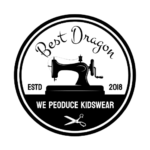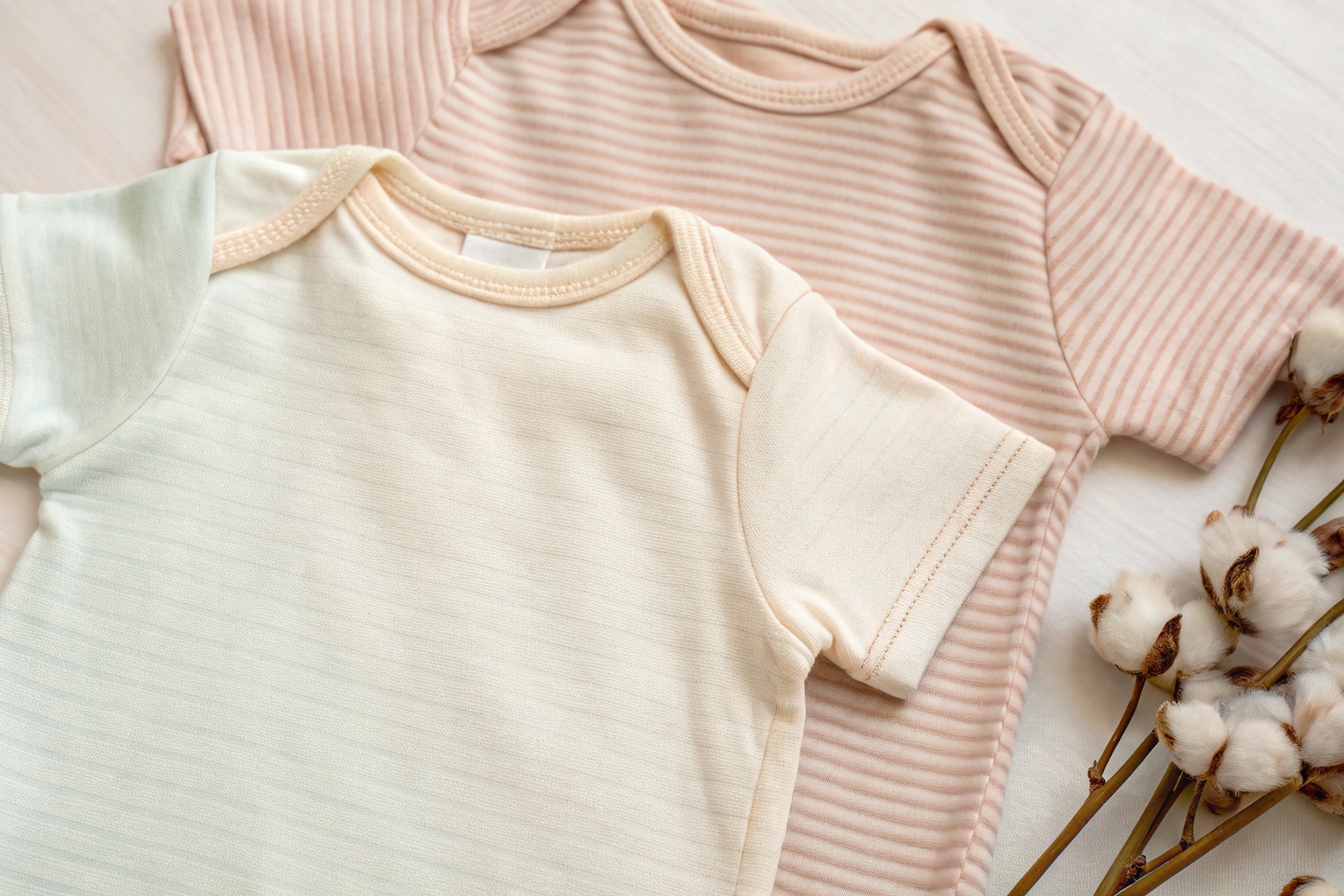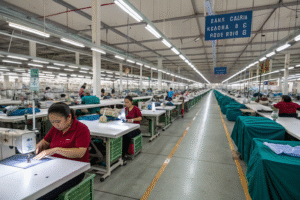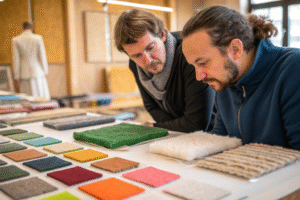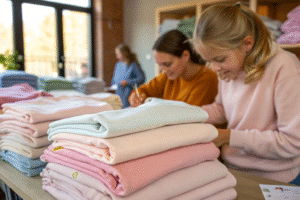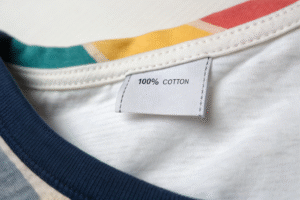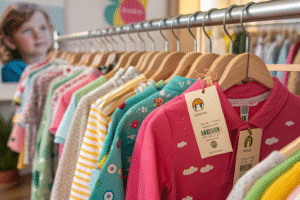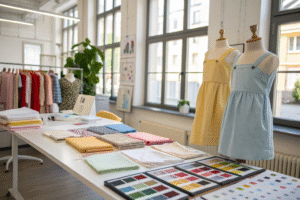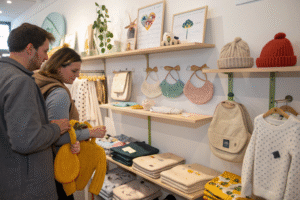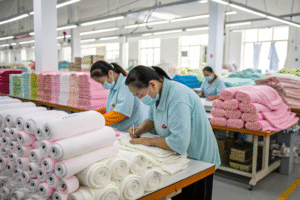Baby T-shirts may look small, but the production costs can vary a lot depending on fabric, quantity, and customization. Whether you’re launching a babywear brand or placing your first bulk order, it’s important to understand where the money goes.
Producing baby T-shirts costs anywhere from $1.20 to $4.00 per piece depending on fabric quality, order quantity, labor rates, and finishing details. Organic cotton, printing, and low MOQ will raise the price.
In this article, I’ll break down the full cost structure of baby T-shirt production—so you can plan better and price smarter.
Cost Breakdown of Baby T-Shirt Manufacturing?
Let’s start with a basic cost breakdown. What goes into making a baby T-shirt?
The cost of a baby T-shirt includes fabric, trims, labor, printing/embroidery, quality control, packaging, and factory overhead. Each component contributes to the final unit price.
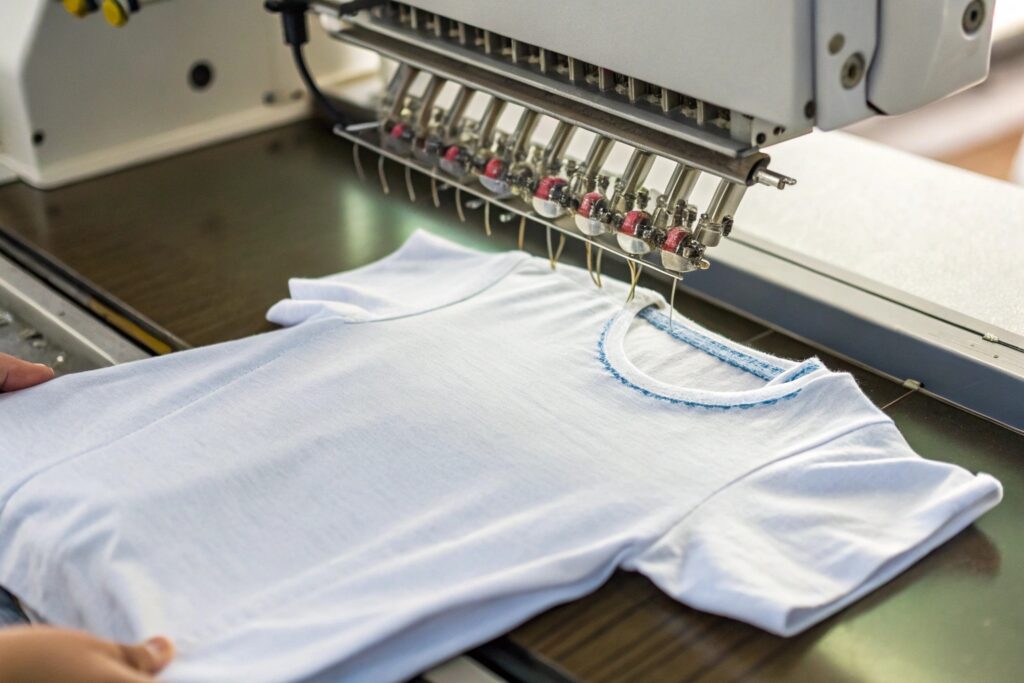
Sample cost breakdown (based on 1,000 pcs order):
| Component | Average Cost (USD) |
|---|---|
| Fabric (100% cotton, 160gsm) | $0.60–$0.90 |
| Trims (labels, thread) | $0.10–$0.20 |
| Sewing labor | $0.35–$0.60 |
| Printing (1-color front) | $0.15–$0.30 |
| Quality control | $0.05–$0.10 |
| Packaging (polybag, size tag) | $0.10–$0.15 |
| Factory overhead & margin | $0.25–$0.50 |
Estimated total: $1.60–$2.75 per piece (for standard cotton tee, FOB China)
At Fumao, we provide detailed cost sheets during sampling to help clients see where every cent goes—and where they can adjust for budget.
How Fabric Choice Affects T-Shirt Production Cost?
Fabric is the biggest cost component. The price can double depending on your material choice.
Choosing organic cotton, bamboo, or high-GSM knits can raise the cost of baby T-shirts by 20–50% compared to regular cotton. Imported or custom-dyed fabrics also increase pricing.
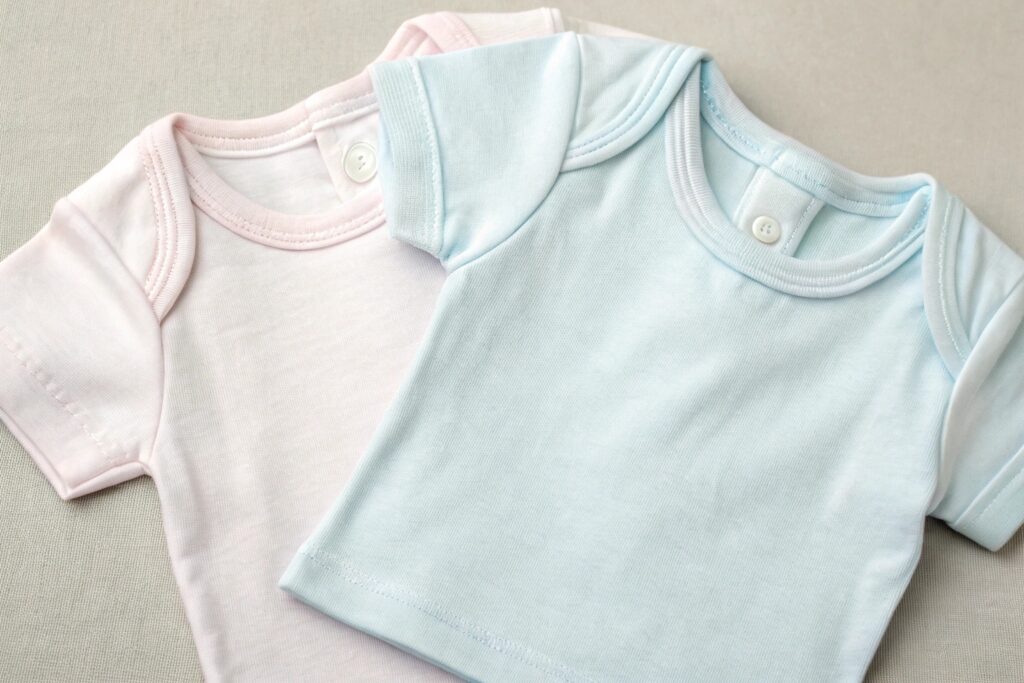
Common babywear fabrics and their impact:
| Fabric Type | Fabric Cost (Per Meter) | Impact on T-Shirt Price |
|---|---|---|
| Regular cotton jersey | $1.50–$2.20 | Base price |
| Organic cotton (GOTS) | $2.80–$3.50 | +$0.40–$0.70 per shirt |
| Bamboo-viscose blend | $3.20–$4.00 | +$0.50–$0.80 per shirt |
| Cotton-rib knit | $2.00–$2.80 | Slightly higher than jersey |
Fabric usage per shirt:
- A baby T-shirt typically uses 0.20–0.25 meters of fabric
- For bulk production, fabric yield efficiency reduces waste
Fumao offers clients the option to choose from in-stock fabrics to reduce sourcing costs and lead times.
Labor and Overhead in Babywear Manufacturing?
Babywear requires precision. Even though the garments are small, skilled labor and factory processes still take time and space.
Labor costs for baby T-shirts vary by country, but in China they range from $0.30–$0.60 per unit depending on sewing complexity, factory setup, and quality control systems.
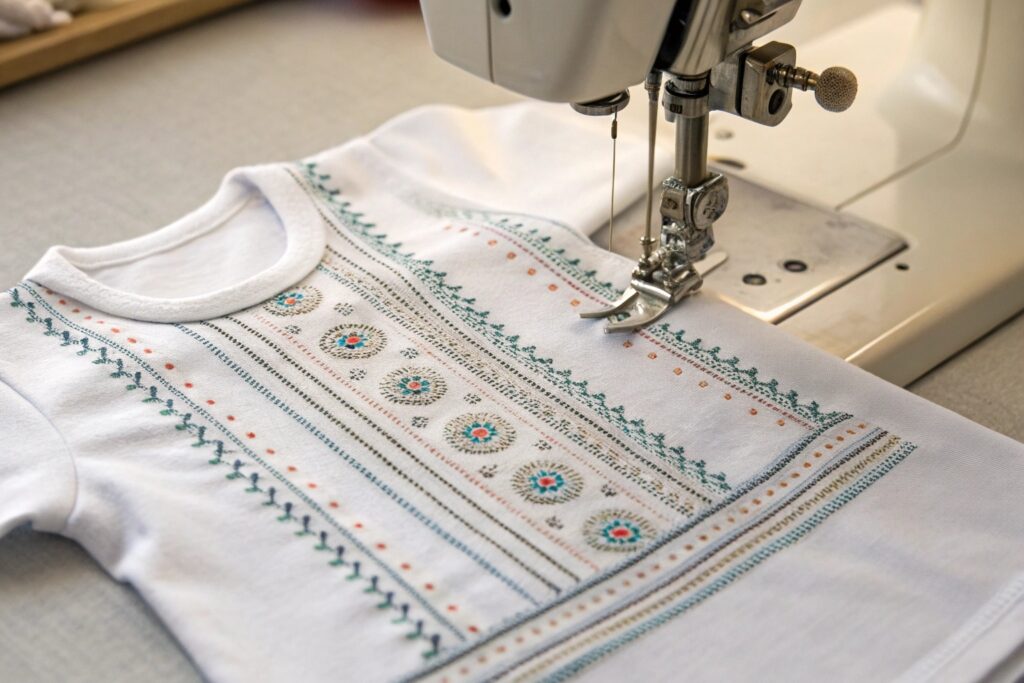
Labor cost factors:
| Factor | Effect on Labor Cost |
|---|---|
| Sewing complexity | Simple tee vs envelope neck |
| Size range per order | More sizes = more pattern handling |
| Fabric stretchiness | Knits require skilled handling |
| QC inspections | Manual checks add time and labor |
Overhead includes:
- Cutting, bundling, ironing
- Machine maintenance
- Factory utilities and admin
- Margin to keep the factory profitable
At Fumao, we operate 5 sewing lines dedicated to babywear—ensuring consistent quality and competitive labor pricing for mid-sized orders.
MOQ Impact on Baby T-Shirt Unit Price?
Order quantity plays a major role in pricing. Small orders often cost much more per unit.
Lower MOQs (like 200–500 pcs) usually increase the unit cost of baby T-shirts by 30–60% compared to orders of 2,000+ pieces. That’s because material sourcing, setup, and labor time are divided over fewer units.
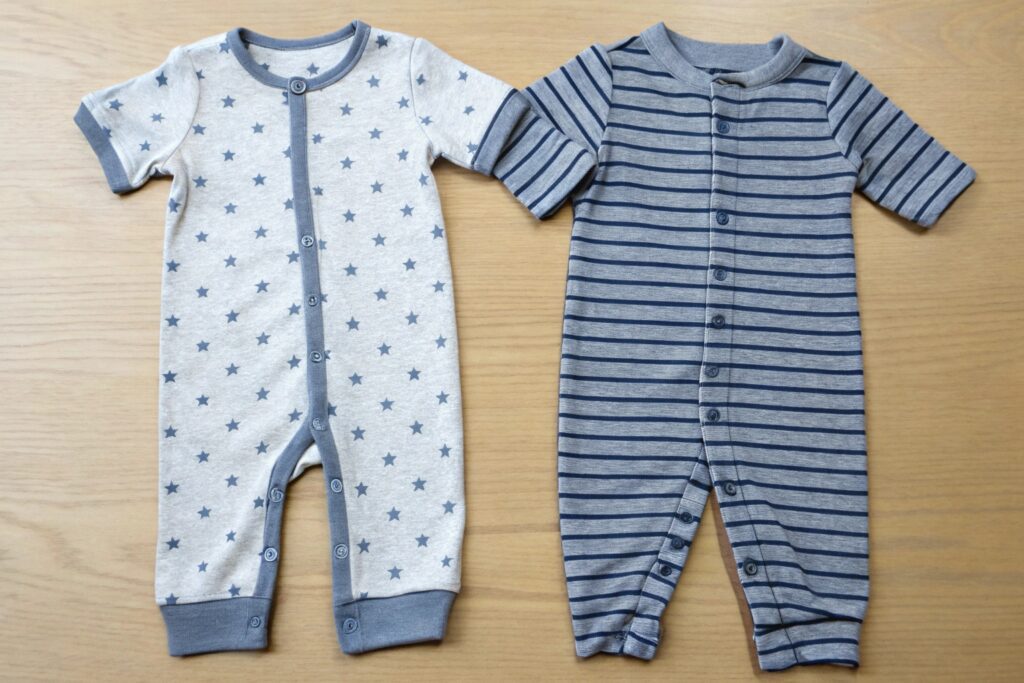
MOQ pricing examples:
| Order Quantity | Estimated Unit Price (USD) |
|---|---|
| 200 pcs | $3.20–$4.00 |
| 500 pcs | $2.40–$3.20 |
| 1,000 pcs | $1.80–$2.75 |
| 3,000+ pcs | $1.50–$2.30 |
Why price drops with volume:
- Bulk fabric orders lower cost per meter
- Trims and labels can be mass produced
- Factory allocates a full sewing line
- Overhead spread across more units
At Fumao, we help startups test with low MOQ but also advise them how to scale gradually to bring down unit costs.
Conclusion
Producing baby T-shirts costs more than just fabric—it includes skilled labor, safety-focused construction, and thoughtful finishing. By understanding the full cost breakdown, you can make smarter choices in fabric, quantity, and design. Whether you’re starting small or scaling up, a trusted factory like Fumao ensures quality without surprise costs.
